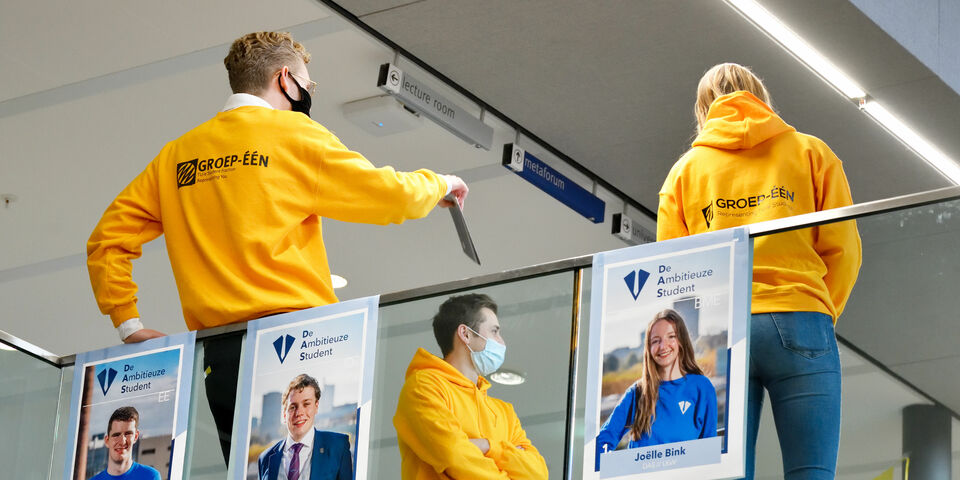Where is the funding going and what do we want to achieve? Will there be quiet rooms in higher education institutions? Is the institution going to offer free menstruation products? And what help is there for students with problems?
At all the higher education institutions students and staff have a say in such matters on councils and committees. There are elections for that purpose – at least, if enough candidates can be found. But how many people are actually voting? The turnout is constantly declining. Also at TU/e there's a decline, in the December elections for members of the university council, the turnout rate fell below 30 percent for the first time in a long time.
With the motto of ‘Elect for better education’ Minister Dijkgraaf is calling on staff and – especially – students to cast their vote. The national participation bodies, student organisations ISO and LSVb and the umbrella organisations of higher education institutions are supporting him in this.
Why do you think the turnout is so low?
“Let me start by saying that the low turnout for the participation council elections is a major cause for concern to me. An effective participation council is crucial for well-functioning vocational colleges and higher education institutions. To facilitate it, the turnout needs to be as high as possible and a large number of students and staff need to stand for election.”
But the turnout could be higher, apparently.
“Research shows that there is too little awareness of what the participation council does, especially among students.”
Attention
Dijkgraaf suggests a couple of ways of changing that. Elections help to devote more attention to student and staff participation at the educational institution, he feels. In addition, the work of the participation council needs to be clearly visible, so the members have to keep the people they represent informed. He believes it also helps if institutions start recruiting potential candidates in good time.
“We need to stress the message even more that as a student or staff member you can actively influence your institution’s policy”, Dijkgraaf argues. “That’s why we are calling on people today to go and vote.”
What are you yourself doing to bolster participation in the decision-making process?
“I have made an extra 11.5 million euros available for training, support, communication and remuneration. Adequate support is crucial if participation is to work effectively. It also makes the council’s work more attractive.”
But some institutions provide more support than others.
“The law is clear about the right of the participation council to get support, but how this is implemented does indeed vary greatly from one institution to another. The question is what is meant by training, support and communication. So I’m currently working with other parties to define this. But the training of members is going well. Last year I attended a training weekend for participation council members at universities of applied sciences and I found it really inspiring.”
National guidelines have been announced for the remuneration of participation council members. How’s that going?
“We’re still working on it. I hope to be able to give the House information on it in the near future.”
Should students and staff be given the opportunity to provide more input?
“I think the participation council already has a lot to say at our institutions. For that very reason, a strong participation council is so important for the quality of the education. Fortunately, that is generally the case.”
Why do you think that?
“The system of participation council rights and obligations in higher education is very robust. In the participation monitor 80 percent of the respondents say that the directors and managers usually or always adopt an open and constructive stance. And 82 percent say they usually or always stick to the agreements reached.”
The call is directed mainly at students. Why should they take part in the participation activities?
“It can be of particular benefit to students. It affects the quality of their study programme, for instance, and the network they build. They get management experience and organisational knowhow.”
D66 is traditionally the party of democratisation. Is student and staff participation extra important for you as a D66 minister?
“An effective participation council at vocational colleges and higher education institutions is important for every education minister, whatever their party.”
The call is made by participation bodies VMH, LOVUM, LOF and Hbo Medezeggenschap, student organisations ISO and LSVb, umbrella organisations Universities of The Netherlands and the Netherlands Association of Universities of Applied Sciences, and the Ministry of Education.


Discussion